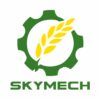Surface wear is an ongoing challenge in industrial production, often compounded by welded wear-resistant tungsten carbide layer failing to meet expected service life. Skymech conducts thorough analyses of wear resistance deficiencies, offering comprehensive solutions to effectively address these issues.
1. Material Selection:
Material selection profoundly influences wear resistance. For instance, in hammer head production, insufficient hardness in base materials and low-quality tungsten carbide particles contribute to premature wear. The distribution and density of tungsten carbide particles within the cladding layer are critical factors in achieving optimal wear resistance.
Efficient Solution: Skymech prioritizes premium base materials such as cobalt-based alloys and meticulously selected high-quality tungsten carbide particles tailored to specific customer requirements. Through extensive market analysis and feedback, Skymech ensures the carbide particle density exceeds industry standards, reaching 50-60%, with a particle diameter of 8-12 mesh. This meticulous approach significantly enhances product longevity and wear resistance.
2. Elevating Welding Quality:
Poor welding quality compromises product wear resistance, characterized by pores, cracks, or weak welds.
Efficient Solution: Skymech implements rigorous welding process optimization, including parameter adjustments, enhancing welding current and voltage stability, and reinforcing gas protection. Stringent quality control measures such as destructive testing and magnetic particle flaw detection ensure uniform particle distribution and identify welding defects, guaranteeing consistent product quality throughout the production cycle.
3. Addressing Design Defects:
Design flaws, such as inadequate surface geometry or structural strength, exacerbate product wear susceptibility. Insufficient forging and cleaning of grinding tools further compound these issues.
Effective solution: Skymech optimizes product design, pays attention to the surface flatness and finish of product forging and processing, and effectively increases the adhesion of welding. We will spot check and destroy products and check the welding section during production. This is indeed a necessary cost in production to determine the overall welding level for rigorous testing and verification to ensure durability.
4. Waste type optimization:
Using different waste materials will damage the performance of the hammer head and accelerate the consumption of the surface coating.
Effective solution: Skymech communicates with suppliers and analyzes the use environment of the hammer head with them, whether it is wood waste, organic waste or waste containing plastic. Different waste materials require hammer heads with different welding or cladding layers, which is conducive to the maintenance of consumable parts. Skymech calls on customers to pre-treat and screen the waste to eliminate impurities and ensure grinding quality. Skymech emphasizes value proposition and recommends investing in raw materials and processes with stable quality to ensure the service life and performance of the product.
In short, careful optimization of the welding process can improve wear resistance and overall product performance. Skymech is always committed to providing excellent products and services to ensure continued customer satisfaction and operational efficiency. Through continuous innovation and improvement, Skymech’s product standards have been recognized by customers, providing reliable solutions that stand the test of time.
For product presentations, check out our youtube website


